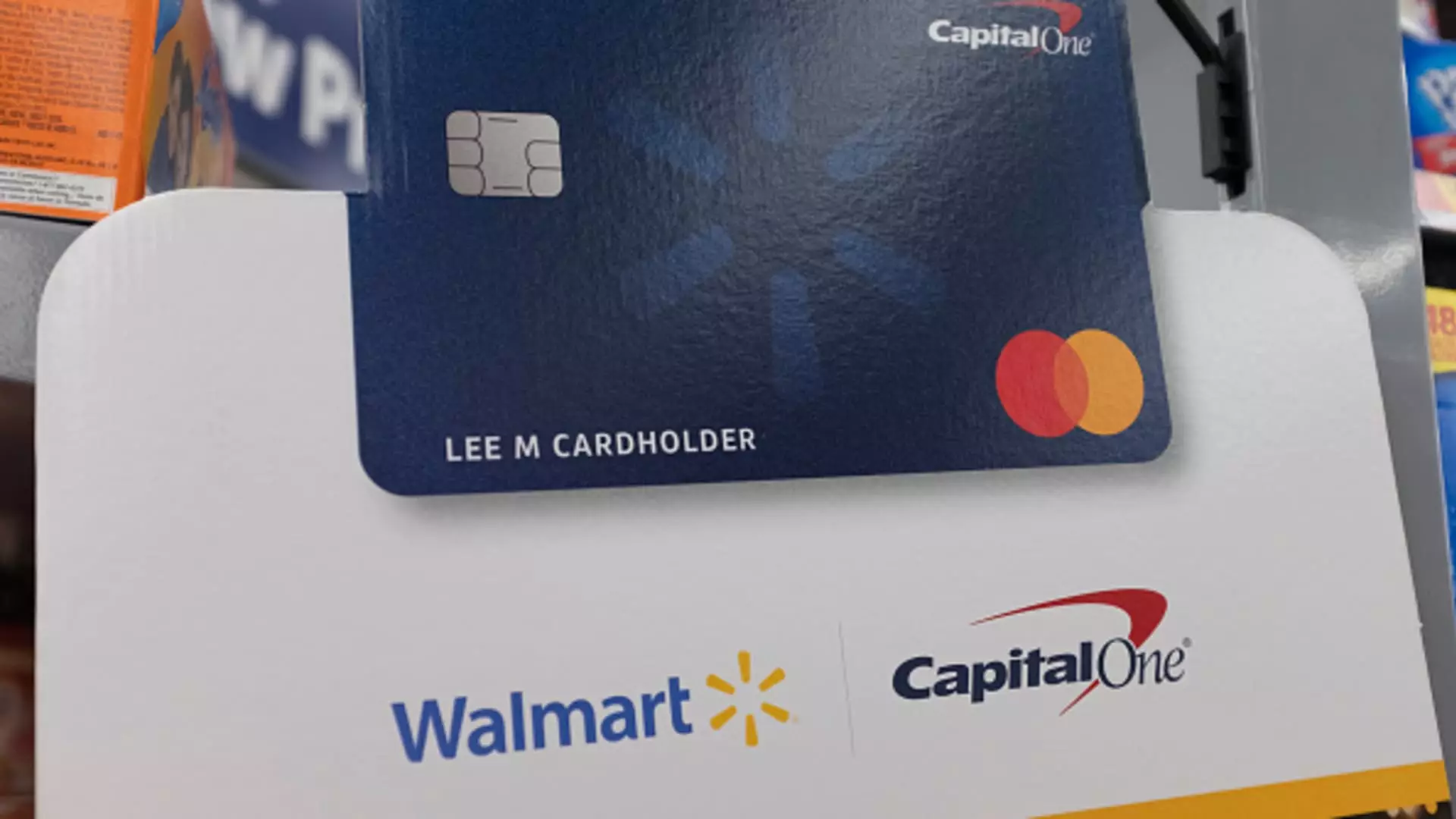Walmart’s fintech arm, OnePay, has recently announced the launch of new credit cards in collaboration with Synchrony Bank, marking a significant stride in its quest to dominate the rapidly evolving financial services sector. This move illustrates not only Walmart’s ambition but also its recognition of a glaring gap in economic accessibility for millions of Americans. However, while it may seem like a benevolent initiative designed to cater to underserved populations, the reality is much more complex—and perhaps troubling.
This partnership emerges after a contentious split from Capital One, with Walmart alleging misalignment in strategic visions. Capital One’s subsequent accusations against Walmart indicate that this is less about consumer empowerment and more about corporate maneuvering. The underlying message is clear: Walmart is eager to become the sole bank for its millions of patrons. Yet, this brings an ethical dilemma that is often overlooked—what does it mean when such a retail giant becomes a financial institution? Could it pave the way for monopolistic tendencies that could ultimately harm the very consumers it seeks to help?
A Double-Edged Sword: Rewards and Pitfalls
The credit card offerings from OnePay—one general-purpose card and one store-specific card—aim to fill the existing void in the market. Yet, while the notion of a widely accepted credit card sounds beneficial, it raises questions about who truly benefits from such a financial product. The store card, which only works for Walmart purchases, limits consumer flexibility and can transform financial convenience into a financial trap for some.
Furthermore, the rewards structure remains undisclosed, begging the question: Are these rewards merely a façade to encourage consumer spending? The lack of transparency in financial products remains a persistent issue, and while OnePay’s CEO Omer Ismail promises a “transparent, rewarding, and easy-to-use experience,” history tells us that promises often don’t materialize when profits are on the line. Wouldn’t it be more prudent for consumers to wait for an opportunity that provides not just rewards but also clear terms?
Scaling Up Through Partnerships: Is It a Win for Consumers?
Although OnePay claims to be moving toward scaling its financial services, the choice to partner with established players like Synchrony and Klarna raises eyebrows. Is this a strategy steeped in genuine intent to provide better services, or a calculated play to leverage existing infrastructures for quicker gains? By relying on other companies, OnePay avoids the arduous task of building its own systems from the ground up. But is this approach just another symptom of oversized corporate ambition that prioritizes speed over quality?
Now here’s the kicker: in the process, Walmart has amassed a customer base exceeding 10 million and nearly $8.5 billion in outstanding loans. This isn’t just about providing credit cards—it’s about wielding widespread economic influence. The question that lingers is whether Walmart’s expansion into financial services can coexist with promoting ethical borrowing practices. Can a corporation that has historically prioritized profitability prioritize the well-being of the millions it serves?
The Broader Context: Financial Inclusion or Exploitation?
As OnePay rolls out its offerings, it heralds a promise of ‘accessibility’ to those traditionally underserved by banks. However, in many instances, these efforts can inadvertently perpetuate cycles of financial dependency. The aspirations to empower are commendable, yet they need to be scrutinized through a lens of caution.
With consumer debt at alarming levels, can we trust a retail giant to stand on the side of the consumer rather than reinforcing debt culture? A single company wielding enormous influence over both retail and finance creates a precarious balance that could easily tip toward exploitation, especially for vulnerable populations often lured in by seemingly appealing offers.
An Ethical Wake-Up Call
Ultimately, Walmart’s foray into the financial sector pressures consumers to grapple with their financial decisions tangentially. More than just a credit card, this venture signifies a watershed moment, opening the floodgates for retail domination over a fundamental aspect of life: personal finance. While there may be benefits to streamline credit offerings, we must remain vigilant, ensuring that the strides taken do not come at the cost of consumer autonomy and financial literacy. In navigating this new terrain, the balance between corporate ambition and ethical responsibility must remain a priority if we hope to avoid pitfalls that may accompany Walmart’s foray into our wallets.

